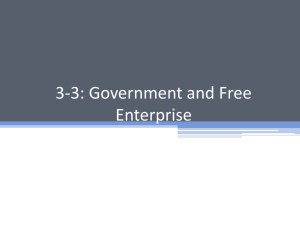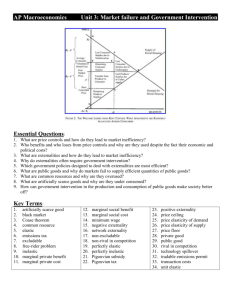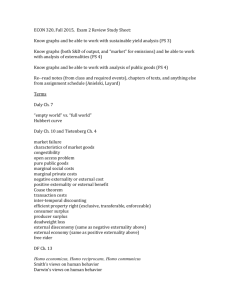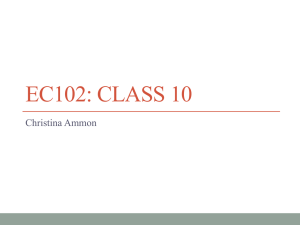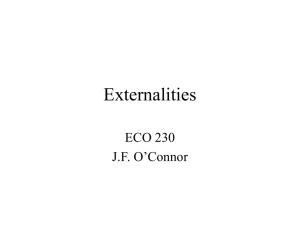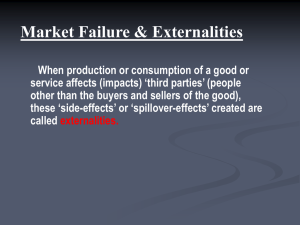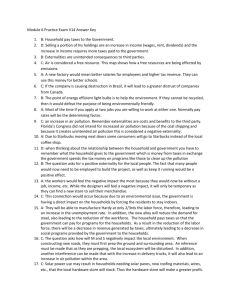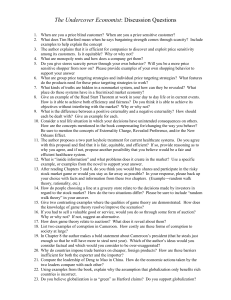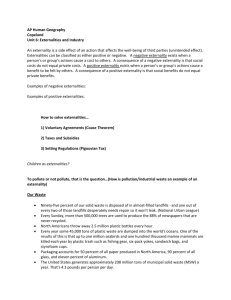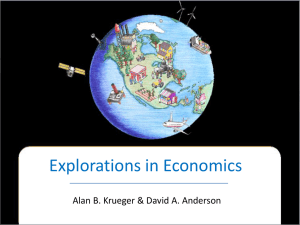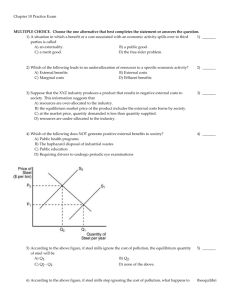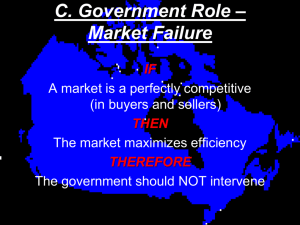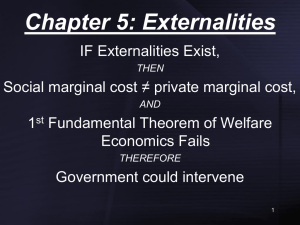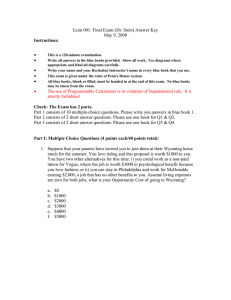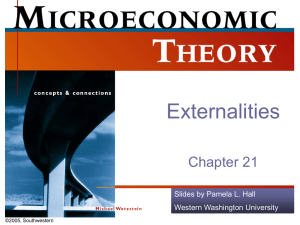Externalities
advertisement
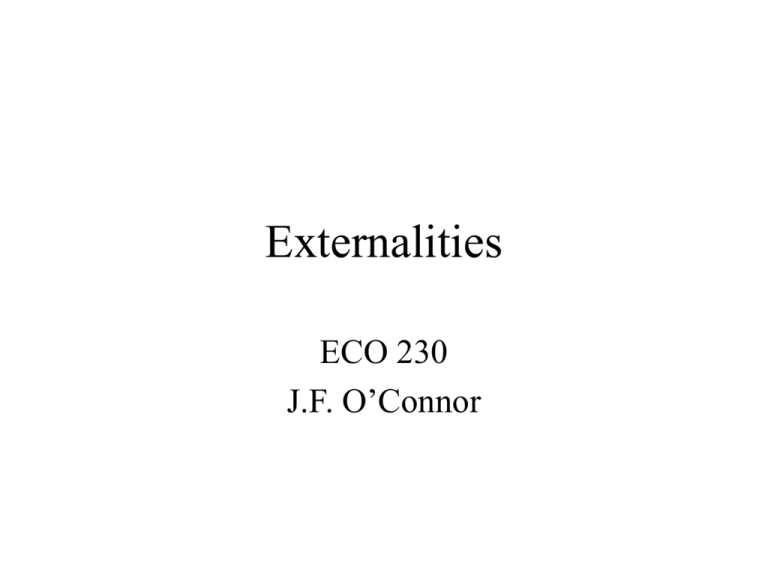
Externalities ECO 230 J.F. O’Connor Topics • • • • • Nature of externalities Why do externalities cause market failure Private solutions to an externality problem Failure of private solutions Government policies to solve externality problems Externality • An externality arises when the actions of a person have an effect on a third party or bystander. An externality is positive if the effect on the bystander is beneficial and is negative if the effect is harmful • Examples: Acid rain, auto exhaust, barking dogs, basic research, education, loud and nasty music next door, cigarette smoke, wet lands, forests, plant emissions into air or water supplies. Essence of the Problem • Person or firm making the decision does not take account of the effects of its actions on third parties. • Waste water from a paper plant contains a chemical that reduces the volume of fish in the local river (Paper plants use large amounts of water) • A person investing in education does not take account of the benefits that education to other members of society Private vs. Social Cost • We need to distinguish between the firm’s marginal cost, which we call the private marginal cost (PMC) and society’s marginal cost (SMC) which is the sum of the PMC and the value of the fish lost by the additional unit of output from the plant. For a competitive industry, the supply curve is the sum of the private marginal costs of the firms. Market Failure • Market solution: P = PMC • Socially efficient solution, P = SMC • Negative externality, PMC<SMC, so market solution gives more output and a lower price than is efficient. Hence, market failure. • See graph. Market solution: P=$.5, Q=70 Efficient solution: P=$.7, Q=60 Figure1. TheMarket for Paper NegativeExternality 1.2 P r i c e $ p e SMC 1.0 0.8 S 0.6 0.4 , D 0.2 0.0 20 25 30 35 40 45 50 55 60 65 70 75 80 85 90 95 100 Quantity(bil. lb. per year) Positive Externality • Apple trees provide bees with pollen from which they make honey. Apple trees generate a positive externality for bee keepers. • Now, SMC < PMC. Market solution gives lees output and a higher price than is efficient • See graph. Resolving Externality Problems • Key is to internalize the cost or benefit of the externality. • Alternatives: private action and government action. • Private solutions likely to work when bargaining or transactions cost are low. That is the essence of the Coase Theorem Solving the Paper Plant Problem • The paper firms: 1. buy the fishing rights on the rivers that they use. 2. pay the fishermen $0.3 per unit of paper • Government: 1. sets emission limits (pollution permits ) for the firms 2. sets standard for the concentration of the chemical in the river 3. imposes a tax of $0.3 per unit on paper producers Private Solutions • If the ownership of the fishing rights are clear and they can be purchased without major bargaining cost, then #1 will work. • If fishermen are organized and negotiations between the parties are not too costly, #2 will work. Government Solutions • Widely used by EPA. Leads to inefficiencies. If trading of quotas is allowed, some of the inefficiencies are eliminated
